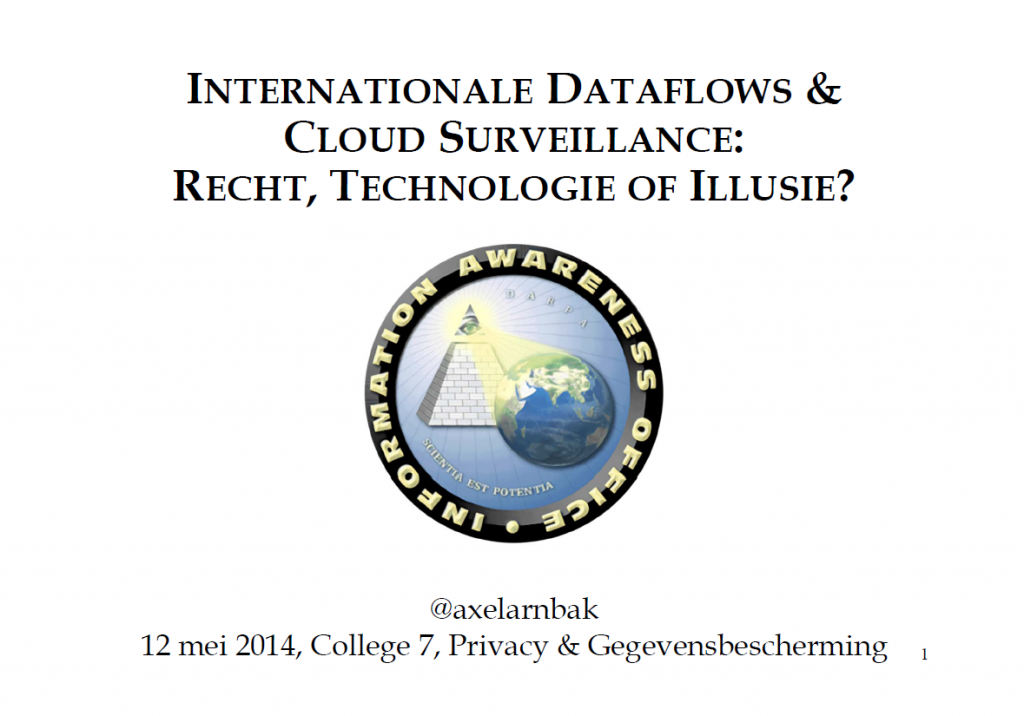An English version of this post was published on Freedom to Tinker on 12 May 2014.
Vandaag komt het langverwachte boek van Glenn Greenwald uit, ‘No Place to Hide’. Naast persoonlijke verhalen over samenwerken met klokkenluider Edward Snowden, belooft Greenwald nieuwe onthullingen van surveillance praktijken van Westerse inlichtingendiensten. In de laatste weken, heb ik samen met Sharon Goldberg (Computer Science, Boston University) een publicatie voorbereid over ‘Executive Order 12333’. Volgens de NSA is dit besluit van President Reagan de ‘belangrijkste juridische grondslag’ voor massale surveillance buiten de V.S. In ons paper beargumenteren we dat ‘EO 12333’ juridische mazen mogelijk maakt in de Amerikaanse Grondwet, waardoor diensten als de NSA vrij van toezicht door het V.S. Congres of de rechter en andere juridische waarborgen Amerikaanse communicatie kunnen afluisteren en analyseren.
Als onafhankelijke onderzoeker, kunnen we natuurlijk niet weten wat Amerikaanse diensten precies uitvoeren. Maar ons centrale punt is, dat de wetten en de techniek het mogelijk maken om de Amerikaanse Grondwet, die overigens alleen bescherming biedt voor Amerikanen, te omzeilen. Hiermee willen we de wetenschappelijke en de politieke discussie in Amerika informeren: denk niet dat nationaliteit een waarborg is tegen de sleepnetten van je eigen diensten.
Sharon en ik vragen ons nu af: zal het nieuwe boek van Greenwald onze theoretische bevindingen bevestigen met nieuwe onthullingen? Gisteren publiceerde Greenwald ineens een flarde over het hacken van routers, die bestemd zijn voor het buitenland. Het zou dus zomaar kunnen. Hier de samenvatting van ons paper, volgende week de eerste versie online. Continue reading Hoe NSA Surveillance van Amerikanen Vanuit Buitenland de V.S. Grondwet Omzeilt [Nieuw Paper] →
